Recently, Nora Saks of MPBN (Maine Public Broadcasting) did two stories about recent surges of interest in local Quaker and Unitarian Universalist churches. Below is the the second of these published stories. Here’s a link to the first.
Stories from 3 Mainers embracing Unitarian Universalism and Quakerism
Maine Public | By Nora Saks, Published February 19, 2026 at 6:08 PM EST

Unitarian Universalist churches and Quaker meetings are seeing a surge in interest in Maine, which is considered one of the least religious states in the country. A recent survey found that a quarter of Mainers identified their religion as “nothing in particular.” But in the second story in this two-part series on the UU-Quaker revival, new members say they’re looking for — and finding — a sense of community, and an inclusive environment with social justice at the core.
It’s a few weeks before Valentine’s Day, and at a Quaker maker café at the historic Durham Friends Meetinghouse, artist Nancy Bouffard is demonstrating the finer points of making stamps out of Yukon Gold potatoes.
“I’m using a linoleum cutting tool to carve into the potato, which is very soft,” Bouffard said, as she carved letters into the little spud.
These monthly maker cafes are open to the public. Tonight, a few dozen folks of all ages — some Friends, many not — have come to decorate homemade cards, share a meal, listen to live music, and just hang out.
“It doesn’t involve being on the internet. We’re not on our phones. We’re talking to each other. We’re working with our hands. It’s a different way of being together,” Bouffard said. “So we have an idea that that’s a good thing to do.”
This Quaker meeting has been gathering in Durham since 1775.
Bouffard got involved about a year ago. Brought up Catholic in Lewiston, she’s explored a variety of spiritual practices throughout her life, and most recently, was attending a Congregational Church in Minot, where she lives.
But there was a moment right after President Trump’s second term began, when Bouffard realized she needed a different kind of faith community.
“It was really Elon taking our data,” Bouffard said.
A former computer programmer, she was worried about the sensitive information Musk was collecting through DOGE, and the potential for harm.
“And I felt like my little Congregational community didn’t want to be political at all,” Bouffard said. “And I wanted to be with people who I knew were active, and also believed in the real challenge of peace, trying to come at activism peacefully.”
Quakerism’s commitment to peace and nonviolence dates to the religion’s roots in 17th century England. Having had some experience with Quakers before, Bouffard said she knew they could help her.
“They could teach me things that would help me get through what I was finding to be a really challenging time,” Bouffard said. “So I started coming and hanging out here. And I haven’t been disappointed.”
Bouffard said she’s gotten connected with efforts to support Indigenous and immigrant rights. But beyond the activism, she said, she’s understanding something else too.
“The power of silence,” Bouffard said. “There’s something here, very much teaching being quiet.”
Quaker meetings typically involve a lot of time being quiet, and listening to and holding space for those you disagree with.
“There are role models here for me that are practicing things I believe in that keep me on track,” Bouffard said. “Where I feel like I’m reactive, just parts of my personality, I like to be in a place where I can see examples of people I admire, respect and aspire to. And I find that here.”
Kathy Glennon’s path to Unitarian Universalism was more of a stumble. We spoke after a volunteer fair in Brunswick.
“And I was actually representing the lesbian, gay, bisexual, transgender group at our church,” Glennon said.
Like Bouffard, Glennon was raised Catholic. But, eventually, the now-retired special education director said she felt like the Catholic Church wasn’t keeping up with changes in society – especially around gender and sexual equality.
“I didn’t really have a negative experience with the Catholic Church, in so much as what made it not work for me was that, ‘Oh, I’m gay.’ And that that doesn’t seem to fit with them,” Glennon said.
Decades passed. And except for a few years as a practicing Buddhist, Glennon said she’s always had a spiritual life, but not much of a religious one.
A few years ago, a friend invited her to check out the UU church in Brunswick. Glennon hemmed and hawed, but finally, she went.
“I liked what I heard, I liked what I saw, and I keep coming,” she said. “I think that what I was looking for in a faith community was a place where, as a member of the LGBTQ community, I felt welcomed, not just tolerated. And looking for a community that was engaged with the greater community in a way that was not just lip service.”
Glennon said at this church, she feels comfortable being exactly who she is.
“Every single service we start with, ‘We welcome who you are, whoever you are, who you love, where you’re from, how much money is in your pocket. You’re welcome here’,” Glennon said.
The church also helped her to get to know and support other people who are working on a wide spectrum of social justice issues, from gun violence to Indigenous sovereignty.
“I like being involved in other activities in the UU because I get to be queer, but that’s not my only silo,” Glennon said. “I’m also involved with this activity or that activity — it’s not a single-issue thing.”
Glennon said now, she feels like she’s part of a church community that actually practices what it preaches.
“I think the vibe is about really focusing on, how do our actions and what we do demonstrate the core principle of love? Not that we hate this political group or that political leader, but are they reflecting love? And what would that look like? That’s we try to do, and it’s hard,” Glennon said.
Like Kathy Glennon, Regine Whittlesey joined the UU Church of Brunswick somewhat accidentally. We met after the satellite service at the Eveningstar Cinema.
“I did not want to belong to a church. I don’t want to have anything to do with religion, because I think that’s the source of evil in much of the world. So that took me by surprise to accept the word church in my life,” Whittlesey said.
A retired teacher from France, Whittlesey says she comes from a family of staunch atheists. But she loves singing. So when one of her former students, who happens to be the church’s music director, invited her and her husband to join their pop-up choir last year, they said yes. They had to attend the service.
“And we were mind blown by the service. Kharma, the minister, is an incredible person. Such wisdom and empathy. And so after that, we decided to come back. And so now we are part of the church, but it was not really a conscious decision. It happened,” Whittlesey said. “And we thought, ‘Yes, we need this community in our life, we need to be with people who feel like us, because these are very, very difficult times’. And we get a lot of solace from coming here.”
Her husband David Whittlesey said attending services and being part of the discourse here has helped them grapple with the question:
“What can we do? What do you do in a period of time when you’re seeing a country that you’ve worked for, worked with, falling apart and abandoning its values? What do you do?” David said.
Encouraged by the minister and other members to get more involved politically, they’re not only calling their elected officials and going to protests but also supporting a bill that would require the state to divest funds from perpetrators of international human rights violations.
“It’s a small act of resistance to go testify, but we felt like we’re doing our part,” Regine said.
These days, instead of staying home with her head in her hands, she looks forward to Sunday church services.
“We’ve never been afraid to try new things. So, you know, we’re open, and I’m really glad we are, because we found a good place,” Regine said.
Now, she just has to figure out how to explain this change of heart to her family back in France.
This is part two of a two-part series on Religion in Maine.






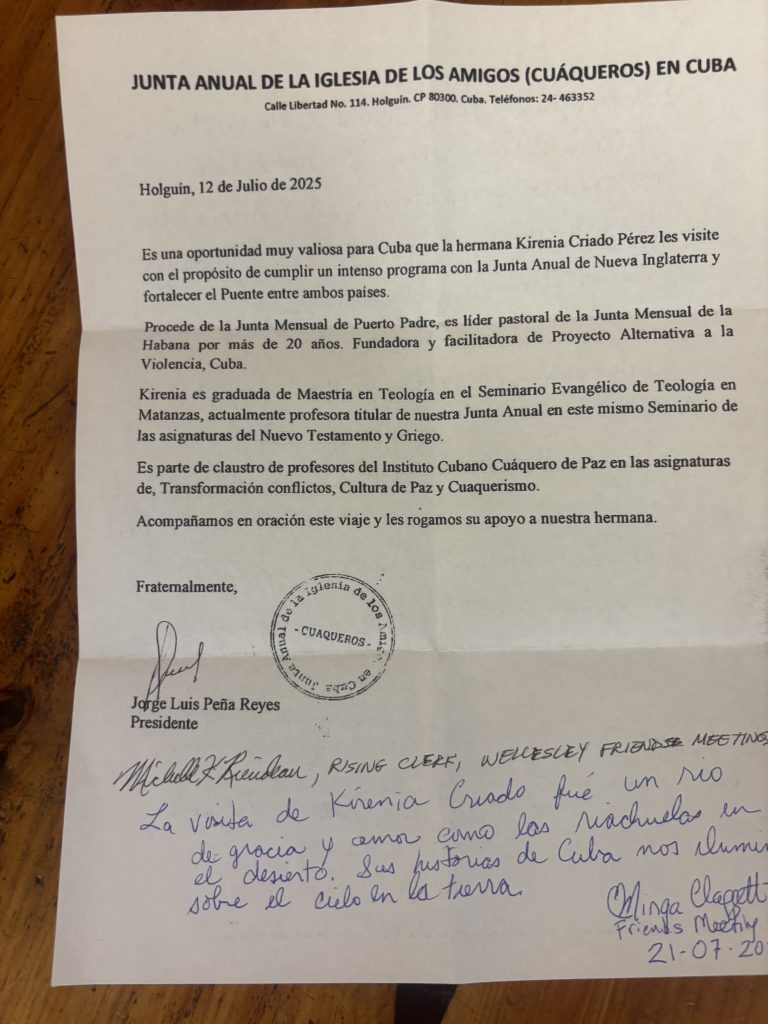
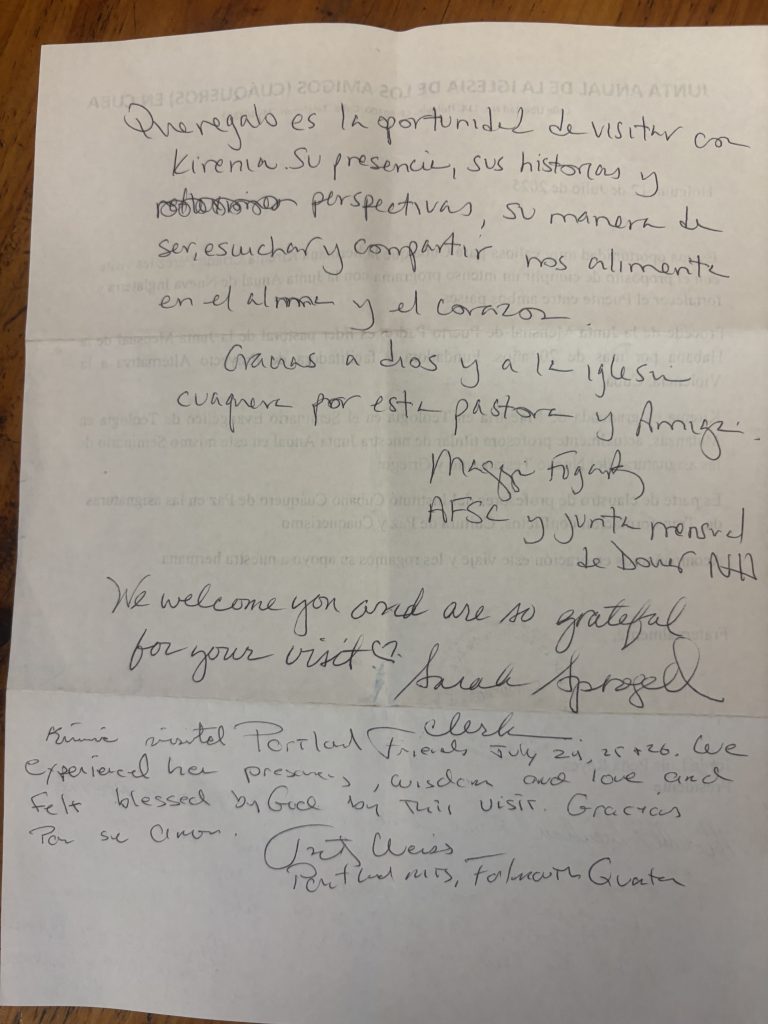



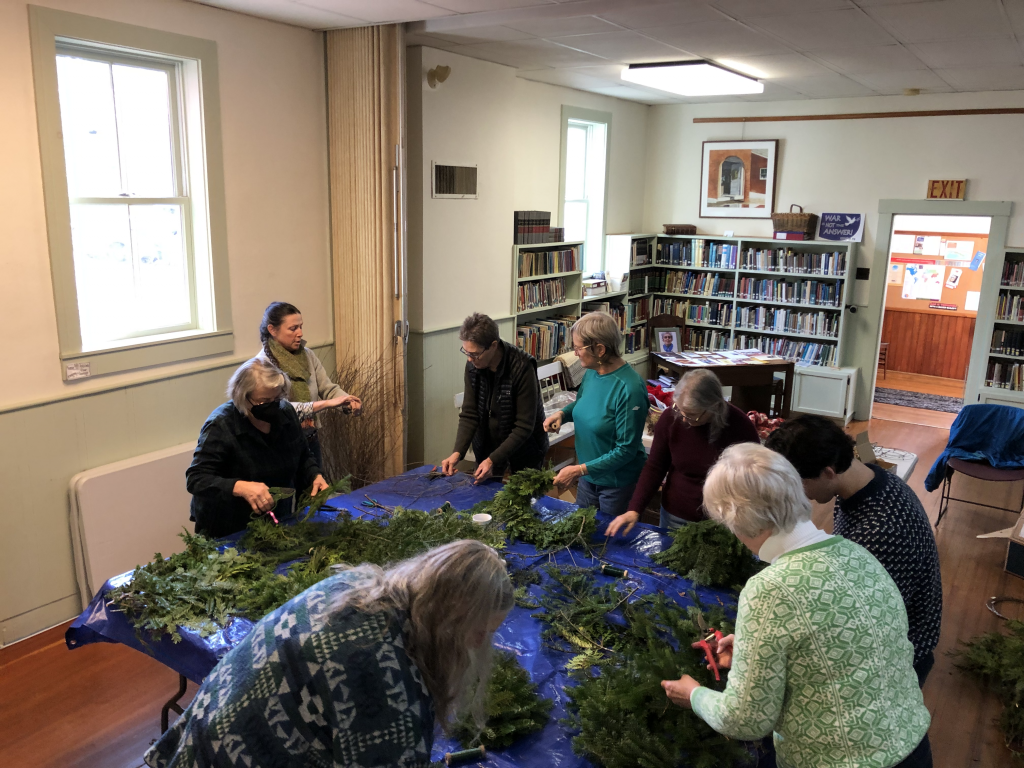
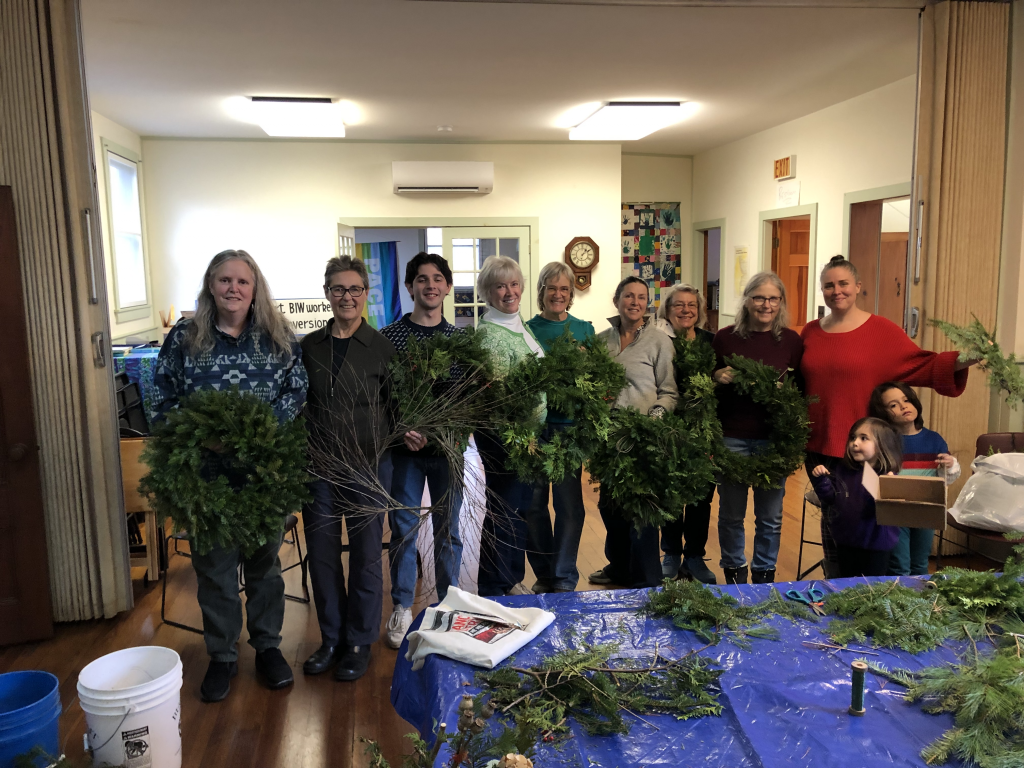
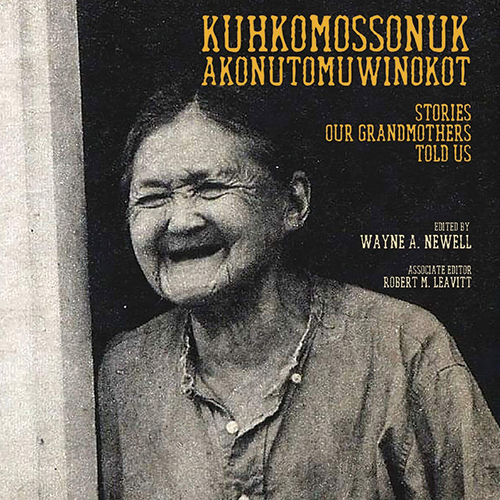
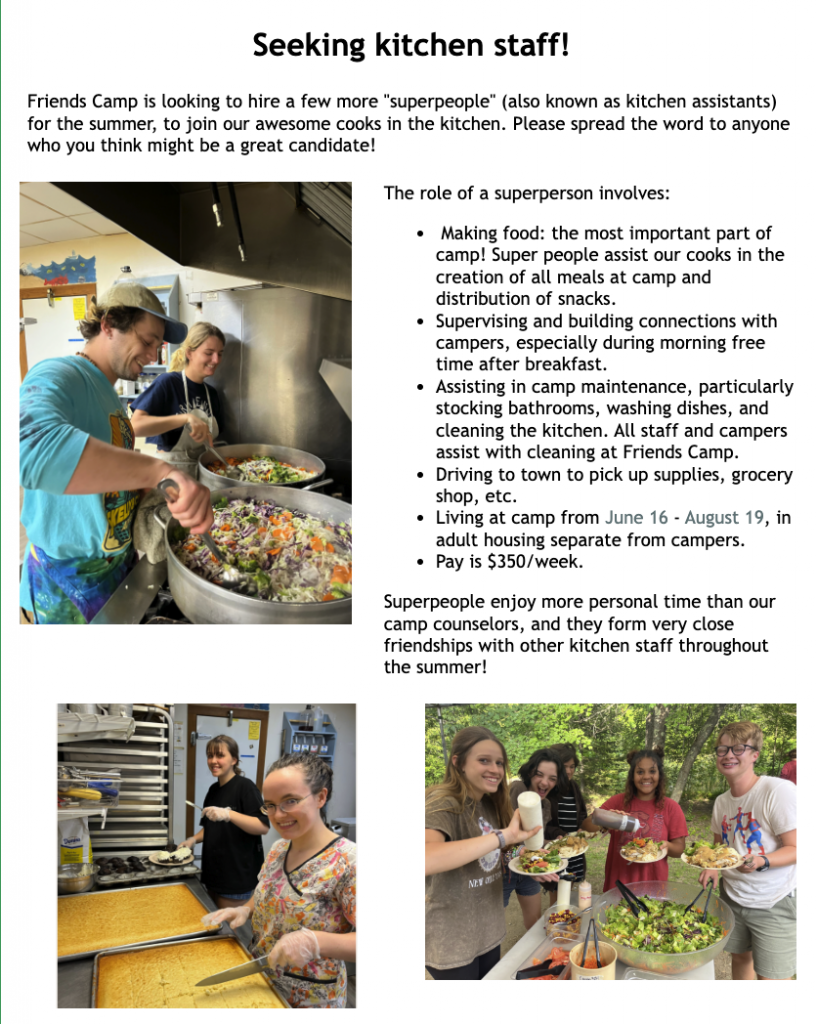
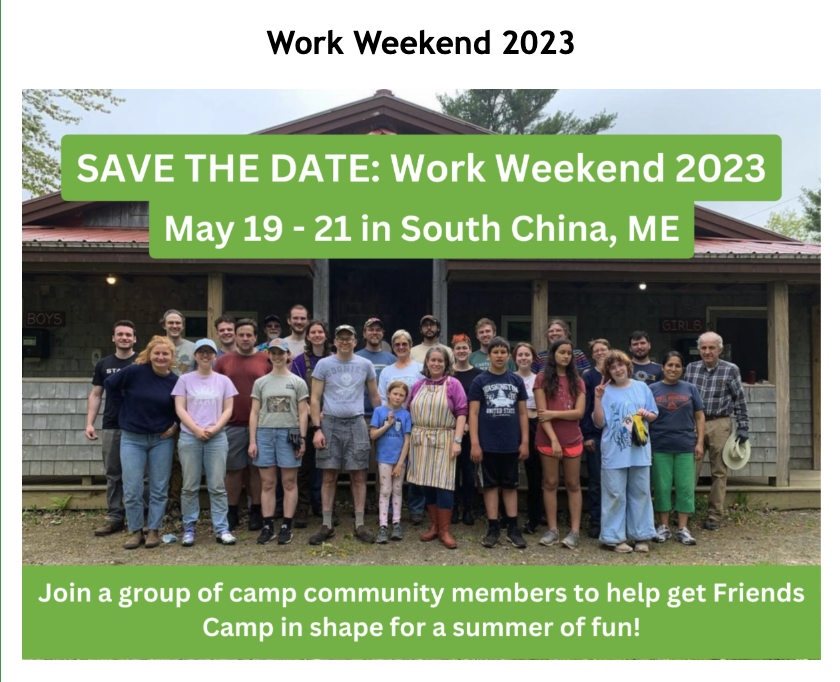



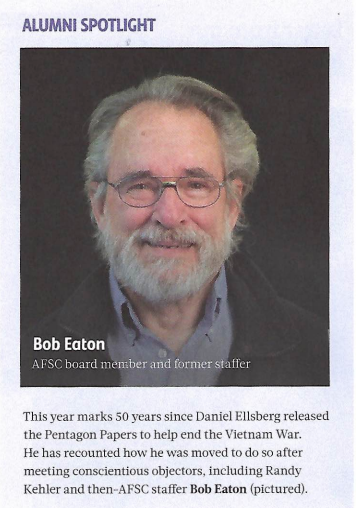
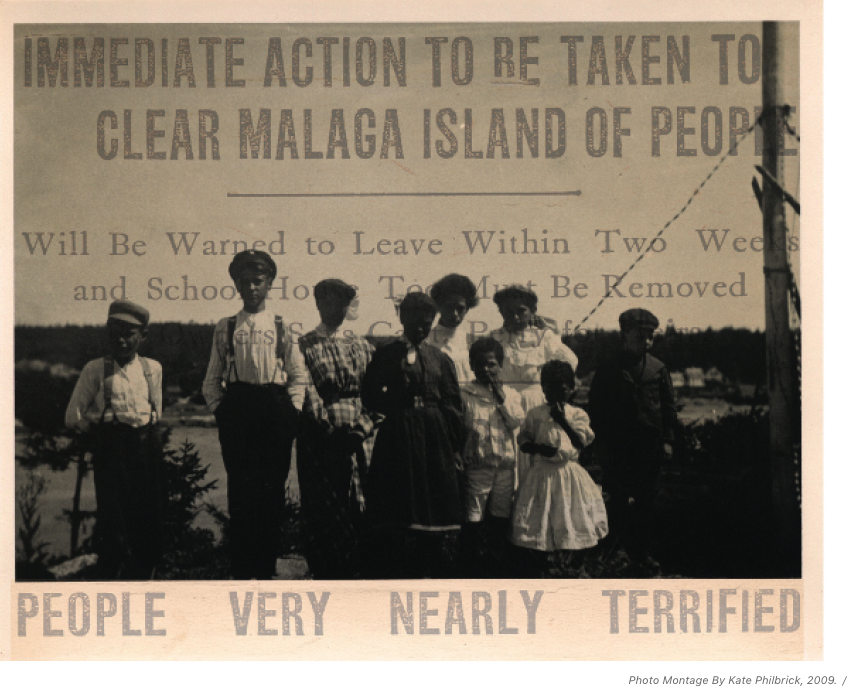
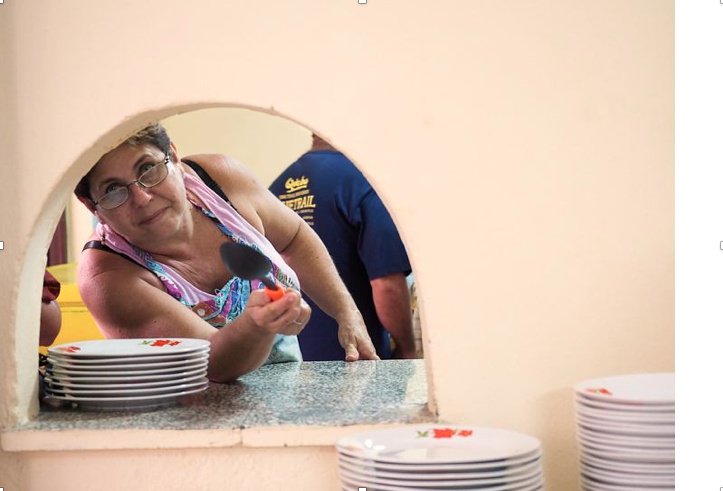
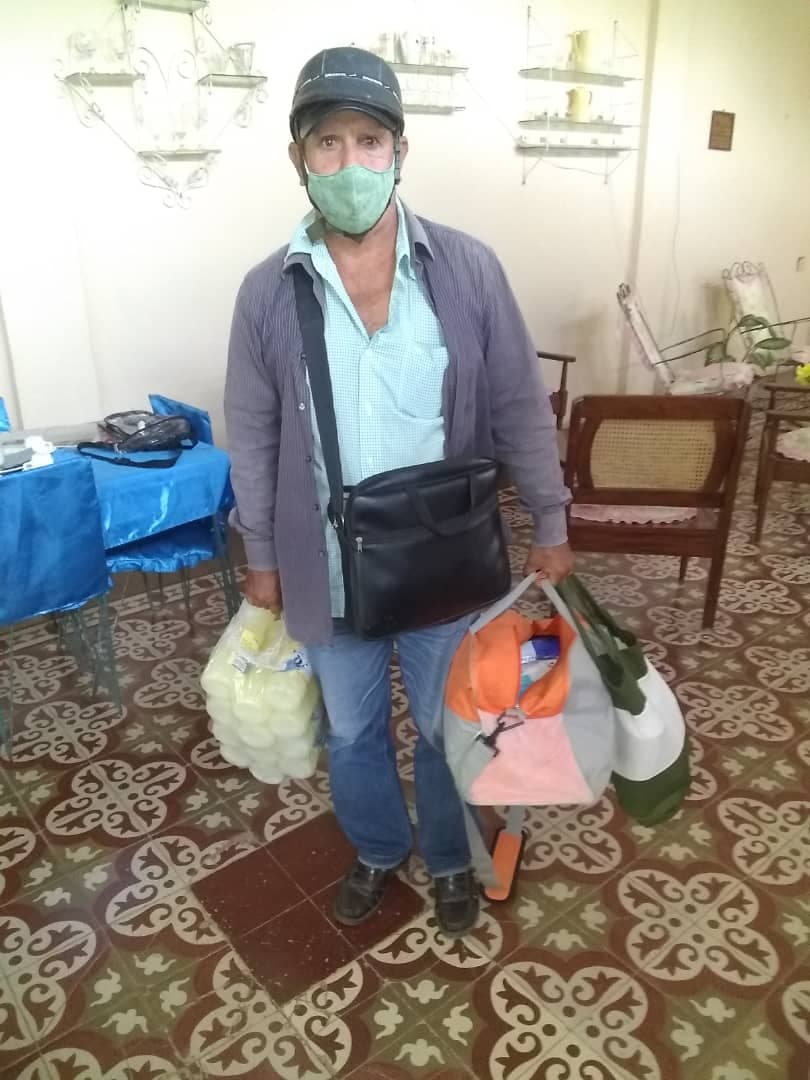 Ministries continue even as the economy suffers. Churches that have ministries to assist the elderly persist even when the cost of food has risen by up to five times. Car maintenance, fuel, and various services that have always been paid for in US dollars continue to be needed, even though they have become more expensive on account of inflation, and because of the difficulty in acquiring US dollars in the interior of the country. (On the black market, one US dollar is now equivalent to forty-eight or fifty Cuban pesos.) Just as the state has increased the salary of its workers, the church has also increased the salary of its workers, lay or pastoral, because everyday life has become more and more expensive. All churches have ministries that need funds to function, in commissions, departments, councils, etc. Electricity rates have risen up to ten times their value, so the monthly rate is close to or exceeds one thousand pesos.
Ministries continue even as the economy suffers. Churches that have ministries to assist the elderly persist even when the cost of food has risen by up to five times. Car maintenance, fuel, and various services that have always been paid for in US dollars continue to be needed, even though they have become more expensive on account of inflation, and because of the difficulty in acquiring US dollars in the interior of the country. (On the black market, one US dollar is now equivalent to forty-eight or fifty Cuban pesos.) Just as the state has increased the salary of its workers, the church has also increased the salary of its workers, lay or pastoral, because everyday life has become more and more expensive. All churches have ministries that need funds to function, in commissions, departments, councils, etc. Electricity rates have risen up to ten times their value, so the monthly rate is close to or exceeds one thousand pesos.
